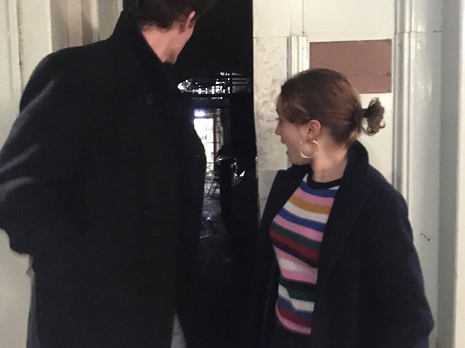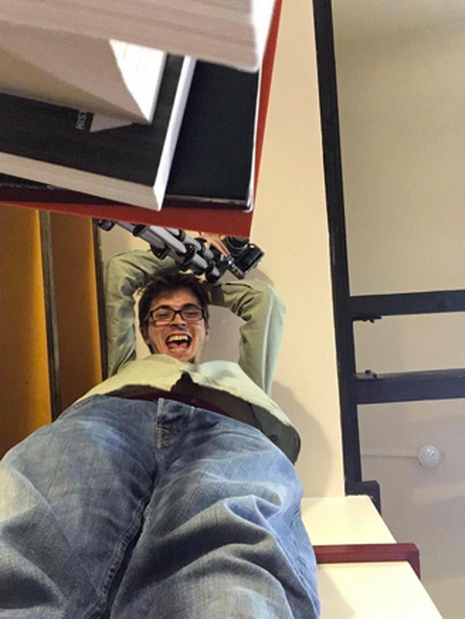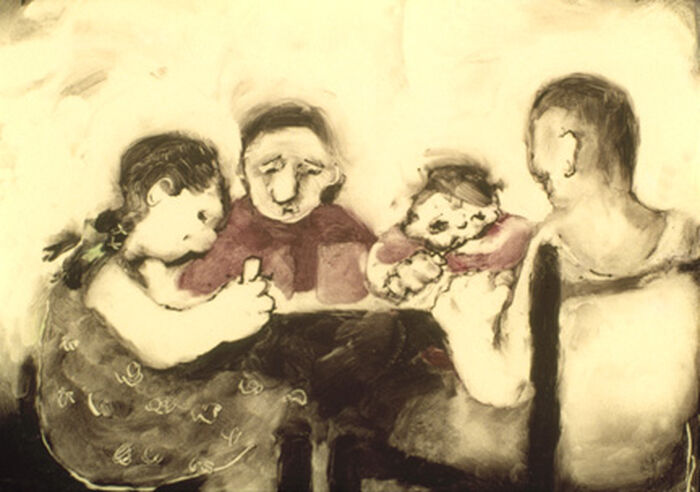CFA Co-directors: “Show it to as many people as you can stomach”
Lily Baldwin sits down with the CFA’s co-directors ahead of the ‘Cambridge Shorts’ festival to get their advice on all things film

Louis Norris and Rebecca Guthrie are the co-directors of the Cambridge Film Association, and have made their own short films whilst at Cambridge. I met them for a chat about the Cambridge film scene, and what it takes to make a good short film.
Why do you think the student film scene has grown over the past few years?
RG: People are realising that it is an option. There was also a big push the year before last to make it a proper society.
“They can delay giving you information for longer. The audience just allows it to just happen.”
LN: Cambridge Shorts have helped a lot. Before that film was the domain of a small group who didn’t like theatre. Shorts brought the film scene to the ADC which was hugely helpful because the ADC has a place at the heart of the student art scene.
How are you different as directors?
LN: Every scene I have ever shot has been semi-improvised. My filmmaking style is a bit more gorilla-devised.
RG: Yeah, I’m more planned in what I do. It’s funny, we’re polar opposites. I’m interested in films that are more stylised, I’m more particular in how things should go and look like.
Is the short film a genre in its own right or just a stepping stone?
RG: They do make it to the Oscars so they are defiantly a thing. But we do use it to get ourselves out there. The aim for most is to make feature films. But they do make composite films, made of shorter stories like Kaos by Paulo and Vittorio Taviani.
LN: I would agree but they are also a totally necessary stepping stone. But it’s also like how the short story is entirely a genre in its own right. Because it's shorter and there are no subconscious expectations in rules that you expect them to follow, there is more freedom. With Gasman, the visual storytelling is brilliant, there’s more liberties because it’s a short. They can delay giving you information for longer. The audience just allows it to just happen.

Hemmingway’s ‘For sale, baby shoes never worn’, is a whole story in 6 words. He proclaimed it his finest work. It’s a prime example of a long story contracted into a tiny moment. You can do that if you are lucky and clever. And when people do, it is joyful.
RG: Shorts are actually one of the few things that makes the film industry more accessible – almost anyone who has a phone can make one and get some exposure. For example, Wasp by Andrea Arnold. She’s huge now. It’s very healthy that part of the culture is to learn how to make a film in this way.
Are there different rules in writing a short rather than a feature-length film?
LN: There are less rules than for a feature.
RG: You have to cut out the self-indulgent stuff. Keep it short.
“Almost anyone who has a phone can make one and get some exposure”
LN: Also you can hone in on a particular turn in the structure of a feature-length thing. You still need narrative change but can hone in on the middle or the end or the start of a story. Or focus on a change from one state of things to another state of things.
RG: It’s important to recognise your limitations – you can do most things for cheap but some things you can’t pull off. There are lots of student dramas because that’s where we are – but we can do other things.
What would you do differently next time?
RG: Chill the fuck out because you don’t have to be this stressed out. I felt like I had a lot riding on it. Also, in a really weird way, I was scared of the actors who kind of know what direction is whereas I had never done it before. Next time I’d not be scared by the prospect and give myself the time to do more storyboards.
LN: Don’t just give the sound equipment to Becki on the train. Also, there’s a practical difference with directing film rather than theatre. In film, at least 50% of concentration is on the framing, the lighting blah blah, so it’s easy not to concentrate on how it was dramatically as opposed to technically. I’d try to juggle the two better and maintain a split focus.
What tips would you give to a potential student film maker?
LN: Never underestimate sound, ever.
RG: Get your shot list right, a good AD who keeps it going. And rehearsals matter a lot to film, they will cut down time when actually shooting.
LN: In terms of writing, absorb as much material as you can.
RG: Kill your darlings.
LN: Show it to as many people as you can stomach at every step.
RG: Think big, think outside of the box.
LN: If you can say it visually rather than verbally, do. The joy of film is that you can be very, very subtle. Film can do more with less than any other narrative art form – that is what is so exciting – take advantage of it! Also, take time over the edit!
The next Cambridge Shorts is showing at the ADC on Tuesday 17th October
 News / Uni Scout and Guide Club affirms trans inclusion 12 December 2025
News / Uni Scout and Guide Club affirms trans inclusion 12 December 2025 News / Cambridge Vet School gets lifeline year to stay accredited28 November 2025
News / Cambridge Vet School gets lifeline year to stay accredited28 November 2025 Science / Did your ex trip on King’s Parade? The science behind the ‘ick’12 December 2025
Science / Did your ex trip on King’s Parade? The science behind the ‘ick’12 December 2025 News / Cambridge study finds students learn better with notes than AI13 December 2025
News / Cambridge study finds students learn better with notes than AI13 December 2025 News / Pembroke to convert listed office building into accom9 December 2025
News / Pembroke to convert listed office building into accom9 December 2025








